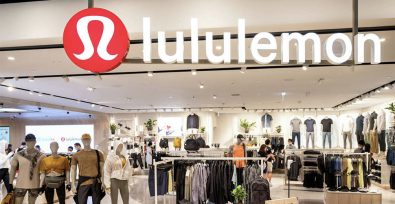The Canadian government recently joined the ranks of California, the United Kingdom and Australia in passing laws designed to eliminate forced labor and child labor in their import supply chain. But a recent litmus test investigation into the Canadian apparel company Lululemon Athletica found that the new Canadian law falls far short of what is needed to truly eradicate forced labor in global supply chains.
What we can learn from Lululemon
Based on international labor standards, Know the Chain benchmarks report ranked Lululemon top among 129 apparel and footwear companies in 2021 for efforts to eliminate the risk of forced labor in their supply chain. But that same year, a different investigation by researchers at Sheffield Hallam University found that Lululemon had a high risk of having cotton from the Uyghur Region of China in their supply chain, an area almost synonymous with Uyghur forced labor and human rights abuses.
Judy Fudge, write in the Conversation:
“Lululemon’s measures to address forced labour largely rely on the labour laws in the countries in which the suppliers are located. Relying on local labour laws is a major shortcoming of many corporate initiatives, since they often fall short of international legal norms and are not well enforced.”
The new Canadian law ostensibly requires companies to disclose efforts to eliminate forced labor and labor exploitation from their supply chains. But if forced labor is found, it doesn’t hold companies accountable or require them to take action to meaningfully address forced labor. Any response is on a voluntary basis and this is representative of many of the existing laws on forced labor. Weak disclosure requirements, no enforcement and no incentive for businesses to change.
Strong laws needed to balance weak corporate commitments
Existing laws need to not just ask large corporations to exercise due diligence, but require that they do so and have strong enforcement mechanisms in order to actually prevent labor abuse from occurring within supply chains and address it when it is discovered. Since the Rana Plaza tragedy in Bangladesh that killed or injured more than 3,000 garment workers there have been serious questions about the effectiveness of voluntary corporate initiatives to address labor exploitation.
“Disclosure laws, like those in Canada’s new act, will not require Lululemon to reveal the type of information needed to ensure its suppliers are not abusing workers. Nor does the new law require large multinational corporations to take any steps to eradicate labour abuses in the supply chains.”
In order for any law aiming to prevent forced labor or labor exploitation from entering the supply chain to be effective, the voluntary nature needs to be stripped out and replaced with mandatory due diligence requirements that put supply chain monitoring at every stage of the manufacturing process. Otherwise forced labor legislation is just a feel-good facade of social responsibility that masks labor abuse and maintains business as usual.
Take action!
We’re urgently calling on governments to pass mandatory human rights due diligence legislation to hold businesses accountable for environmental and human rights abuses in their supply chains. Join the campaign today calling on governments to prioritize people and planet over profits!







Freedom United is interested in hearing from our community and welcomes relevant, informed comments, advice, and insights that advance the conversation around our campaigns and advocacy. We value inclusivity and respect within our community. To be approved, your comments should be civil.